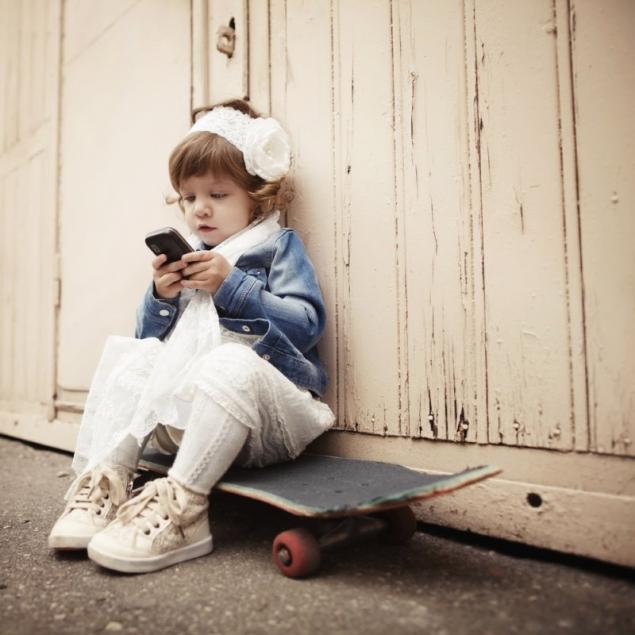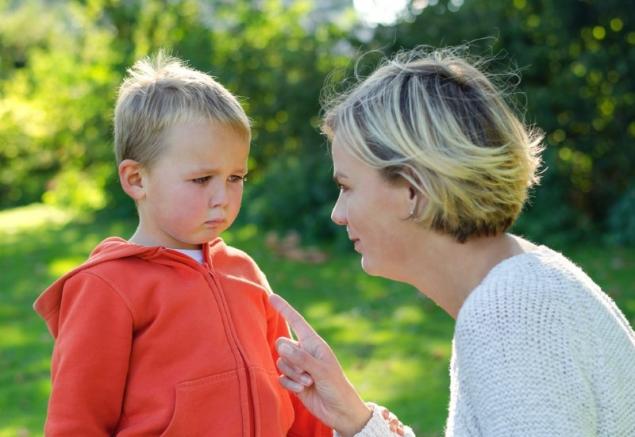152
How to raise an obedient child
Children are the same everywhere: restless, curious, noisy, naughty. But our educational system stubbornly tries to transform the child into a silent and sedentary creature, which at a minimum interferes with both parents and others. But how right is that?
You can often see on the street how the mother pulls the child’s hand and loudly subtracts for the slightest fault. At the same time, she does not make attempts to calmly and consistently explain to the child the consequences of his act.
And today's edition. "Site" He'll try to figure it out. What to do if the child does not obeyHow to respond to his disobedience.

In the head of a small child there are no difficulties, he thinks very simply: if parents forbid everything, they are evil, if they allow it, they are good. It's sad when adult They think in the same categories. Permissiveness comes more often from indifference than from love. Strictness may well arise from a desire to lead you on the right path.
However, the moodiness of children in other countries is perceived differently. If we compare our upbringing with the European one, it is easy to see that the bar of demands for “correct” behavior is much higher. In Europe, a child can behave emancipatedly and no one will consider him unbred, and mom and dad - lousy parents.

DepositPhotos
If, say, in Italy, a 6-year-old boy, while his parents are eating, will run around the restaurant, make noise, and even lie on the floor, the waiters and others will not be outraged and conflict. Rather, they will play along with the baby, ask something, show something, entertain something. He will not be seen as an annoying creature. Such mutual assistance in society allows parents a little rest from their beloved child, take a breath.
319194
DepositPhotos
Of course, if you have had a difficult week and you won one evening to have a quiet dinner with loved ones, then an unknown baby who makes noise, touches you and looks at the plate will be perceived as a real invasion. Therefore, trying to calm the child, calling for the help of parents, seems a good idea.
When a child violates someone else’s peace, parents under pressure from others usually rush convulsively to calm their child. Why do we worry so much that people won’t approve of our toddler’s behavior or how we do our best? parenthood?

DepositPhotos
There is a fear of appearing different from everyone else. There is a fear of being guilty. Psychologists note that in many ways this model of behavior has been transmitted to us since Soviet times, when a person was defenseless before public opinion.
And so that the child does not irritate everyone, he is either intimidated, or appeased, or trying to occupy at least something. For example, they give a smartphone, turn on the child’s favorite game and thus briefly leave the “problem” child alone with him so that others can not see and hear him.

And if a child interferes with other people, you can make them participants in the process of upbringing. Do you notice that the child is noisy? Answer: “Please tell him yourself that he is disturbing you.”
When a stranger politely explains his request to the child, it will be a great discovery for the child. And he will remember what his behavior is unacceptable to others and why. In terms of parenting, it will do more than the incoherent cries of mom and dad.

DepositPhotos
In education, the main thing is not the choice of the guilty, but to find the right way out of the situation. When a child does inexplicable, in your opinion, nonsense, get acquainted with his point of view. That's the only way you know. Why does the child not listen?. Calmly explain to him what is bad and what is good. Show the consequences of what he did.
When there is an attentive, understanding, loving and moderately strict parent next to the child, the child will completely trust him. Then education will turn from torture into an entertaining and pleasant process for both parties.
You can often see on the street how the mother pulls the child’s hand and loudly subtracts for the slightest fault. At the same time, she does not make attempts to calmly and consistently explain to the child the consequences of his act.
And today's edition. "Site" He'll try to figure it out. What to do if the child does not obeyHow to respond to his disobedience.

In the head of a small child there are no difficulties, he thinks very simply: if parents forbid everything, they are evil, if they allow it, they are good. It's sad when adult They think in the same categories. Permissiveness comes more often from indifference than from love. Strictness may well arise from a desire to lead you on the right path.
However, the moodiness of children in other countries is perceived differently. If we compare our upbringing with the European one, it is easy to see that the bar of demands for “correct” behavior is much higher. In Europe, a child can behave emancipatedly and no one will consider him unbred, and mom and dad - lousy parents.

DepositPhotos
If, say, in Italy, a 6-year-old boy, while his parents are eating, will run around the restaurant, make noise, and even lie on the floor, the waiters and others will not be outraged and conflict. Rather, they will play along with the baby, ask something, show something, entertain something. He will not be seen as an annoying creature. Such mutual assistance in society allows parents a little rest from their beloved child, take a breath.
319194
DepositPhotos
Of course, if you have had a difficult week and you won one evening to have a quiet dinner with loved ones, then an unknown baby who makes noise, touches you and looks at the plate will be perceived as a real invasion. Therefore, trying to calm the child, calling for the help of parents, seems a good idea.
When a child violates someone else’s peace, parents under pressure from others usually rush convulsively to calm their child. Why do we worry so much that people won’t approve of our toddler’s behavior or how we do our best? parenthood?

DepositPhotos
There is a fear of appearing different from everyone else. There is a fear of being guilty. Psychologists note that in many ways this model of behavior has been transmitted to us since Soviet times, when a person was defenseless before public opinion.
And so that the child does not irritate everyone, he is either intimidated, or appeased, or trying to occupy at least something. For example, they give a smartphone, turn on the child’s favorite game and thus briefly leave the “problem” child alone with him so that others can not see and hear him.

And if a child interferes with other people, you can make them participants in the process of upbringing. Do you notice that the child is noisy? Answer: “Please tell him yourself that he is disturbing you.”
When a stranger politely explains his request to the child, it will be a great discovery for the child. And he will remember what his behavior is unacceptable to others and why. In terms of parenting, it will do more than the incoherent cries of mom and dad.

DepositPhotos
In education, the main thing is not the choice of the guilty, but to find the right way out of the situation. When a child does inexplicable, in your opinion, nonsense, get acquainted with his point of view. That's the only way you know. Why does the child not listen?. Calmly explain to him what is bad and what is good. Show the consequences of what he did.
When there is an attentive, understanding, loving and moderately strict parent next to the child, the child will completely trust him. Then education will turn from torture into an entertaining and pleasant process for both parties.
























